Our approach to raising Nigerian dwarf goats and Nubian goats is rooted in our commitment to sustainable farming and animal welfare. We strive to create a nurturing environment where our goats can thrive. We intentionally keep our goat herd small. This ensures that our natural grazing areas never get over exhausted.
No confinement and lots of room to play
Currently, our goats have the privilege of approximately 2-3 acres of carefully fenced pasture at any given time. At TnF Farms, we rotate our animals through pastures so there’s always something great to eat and the vegetation gets an opportunity to grow back. These areas includes a mix of open field, shaded forested, and the serenity of a creek bottom where they can roam freely. This diverse environment offers them ample space to run, explore, and engage in their natural behaviors.
Since they are active and curious by nature, we have old playground equipment for them to climb and jump on. Our young goats love the adventurous playgrounds. We keep shelters are thoughtfully placed throughout our rotations. This gives all of our livestock comfortable retreats to seek relief from surprise rain and to get a break from the sun.
Making sure everyone is happy and healthy
We prioritize the health of all our livestock through regular veterinary maintenance. Ensuring that they receive the necessary care to thrive. Our commitment to ethical and sustainable farming practices extends to our animal healthcare. Absolutely no hormones ever and antibiotics only when necessary.
To keep our goats comfortable, we mist them with essential oils. This helps deter insects and provides them with a more enjoyable living experience while avoiding the use of harsh chemical repellents.
Nigerian Dwarfs are affectionate Nubian goats are sweethearts
Perhaps one of the most endearing aspects of our goats is their regular interaction with people. They are not only curious but also affectionate. Often displaying a genuine fondness for human company. Many of our Nigerians enjoy sitting in laps. While the Nubians love following us around and engaging in gentle interactions. This further underscores their friendly and sociable nature.
At TnF Farms, we take immense pride in providing our goats with an environment where they can lead healthy, contented lives. Our approach to farming reflects our dedication to sustainability, animal welfare, and fostering a strong bond between humans and our beloved livestock.
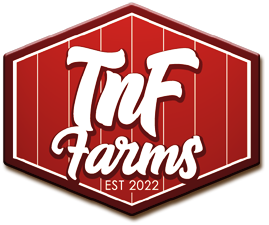
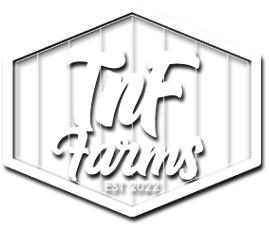
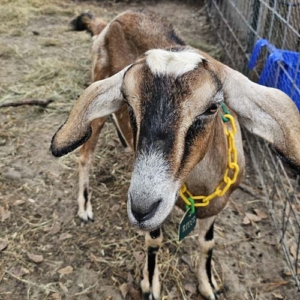
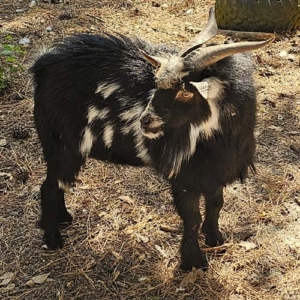
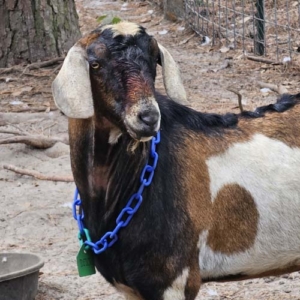
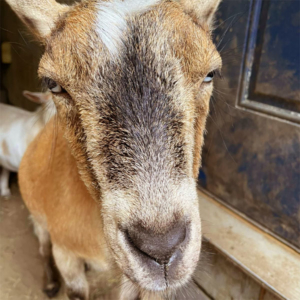
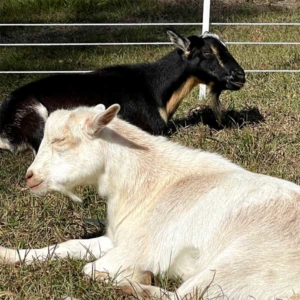

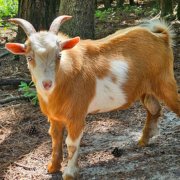
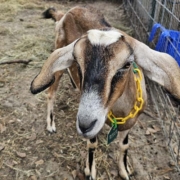
2024 Dairy Goat Guide
/in Farm Animals, Florida Living, Homesteading, Nigerian Dwarf Goats, Nubian Goats/by FaithNubian goats are believed to be one of the oldest domesticated dairy breeds, and their history can be traced back thousands of years. Nubian goats trace their roots to North Africa, with historical significance in Nubia. The Nubia region is now part of Sudan and Egypt. Nubians are known for their distinctive characteristics and valuable contributions to the dairy and meat industries. The breed we know today as Nubian goats was from British does (female goats) being crossed with bucks (male goats) from Africa.
This is an extensive post, I will be covering:
Dairy Goats: Two Adorable Breeds
/in Farm Animals, Farmer's Market, Homesteading, Nigerian Dwarf Goats, Nubian Goats/by FaithWith the choices between Nigerian Dwarf Goats and Mini Nubian Goats, I couldn’t decide! So we have both kinds of goats at TnF Farms. If you’re trying to decide which of these gems is best for you, it boils down to personal preferences. Join us as we break down the differences between both breeds.
Growing lemons in Florida
/in American Guinea Hogs, Farm Animals, Florida Living, Homesteading, Nigerian Dwarf Goats/by FaithWhen we bought the property that is now TnF Farms, we saw that there were some mature fruit trees on the property. We thought they may have been pears. No, they were lemons. The first late fall harvest, we were pretty excited. The lemons were big and bright yellow. We cut into one and it was full of seeds. We tried a couple of others and they were very seedy. Then we tasted one and discovered it wasn’t pleasantly tart, but punishingly bitter. No amount of sugar added to this fruit would make lemonade, lemon curd, or lemon bars.